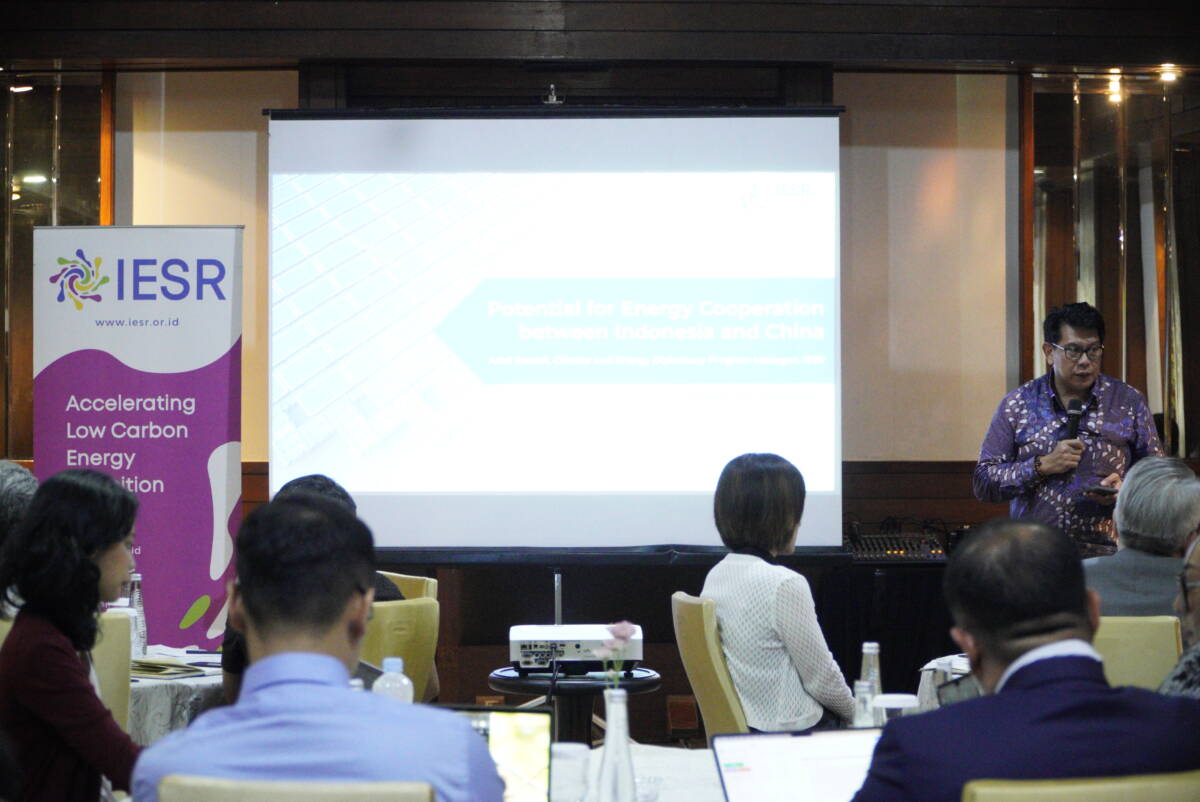Jakarta, October 21, 2024 – Indonesia is still experiencing a number of challenges in carrying out the energy transition. Investment and technology transfer are two key things that have not been resolved in Indonesia’s energy transition process. It is recorded that Indonesia has never exceeded the renewable energy investment target during 2018 – 2023. To achieve the target of the 2015 Paris Agreement, namely limiting the increase in global temperature maximum on 1.5 degrees, Indonesia needs to make more efforts such as establishing partnerships with other countries.
China has made significant progress in its energy transition, since announcing the target to achieve NZE before 2060 in 2020, China recorded a remarkable addition of renewable energy capacity from wind and solar of 339 GW which is currently being built. China is also building a renewable energy industry, such as solar panels which currently have the largest production capacity in the world.
Fabby Tumiwa, Executive Director of the Institute for Essential Services Reform (IESR) in the forum “The Energy Transition Workshop: Potential Collaboration between Indonesia and China for Green Development and Clean Energy Cooperation” stated that there is a growing potential collaboration between Indonesia and China. The issue of energy transition is a common issue faced by both China and Indonesia in an effort to address climate change in the global south.
“Indonesia is in the early stages of its energy transition journey, and Indonesia needs a lot of support to do so, especially in the areas of technology transfer, financing, development of the renewable energy industry, and industrial decarbonization. International cooperation can be pursued to meet these needs, and China has the potential to become a strategic partner for Indonesia,” said Fabby.
Ardhitya Eduard Yeremia, Senior Assistant Professor at the University of Indonesia, said that when discussing China, there is a misperception in the minds of the Indonesian public, namely that China is a single unit. In fact, behind China’s one big face there are various parties such as the private sector, the Chinese national government, the Chinese provincial government, and other parties and institutions.
“So, when networking and building relation with the Chinese side, we need to carefully observe and identify the key actors of the activities we are doing,” he said.
Arief Rosadi, IESR Climate and Energy Diplomacy Project Manager, explained that Indonesia’s need to meet its climate targets cannot be met by its own efforts considering that in addition to the issue of climate change, Indonesia (and also China) currently has the status of a country with an emerging economy.
“There is potential for strategic cooperation between Indonesia and China that can be explored in several areas, namely the development of renewable energy infrastructure, industrial decarbonization, development of renewable energy component industries (solar panels), and development of a framework on sustainable financing for bilateral cooperation,” said Arief.
Su Wei, Deputy Director of the Executive Board, China Center for International Economic Exchange (CCIEE), said that the Chinese government has made a decarbonization policy that concerns several sectors including electricity, industry, transportation, and the building sector.
“China is highly committed to the goal of carbon neutrality, and to achieve it, China has allocated large amounts of investment in both renewable energy projects and industries. This is also China’s contribution to the global energy transition,” he said.
Regarding investment for the energy transition, Su Wei said the two countries need to improve the feasibility of project financing and build sustainable finance expertise to accelerate the implementation of sustainable financing models.

